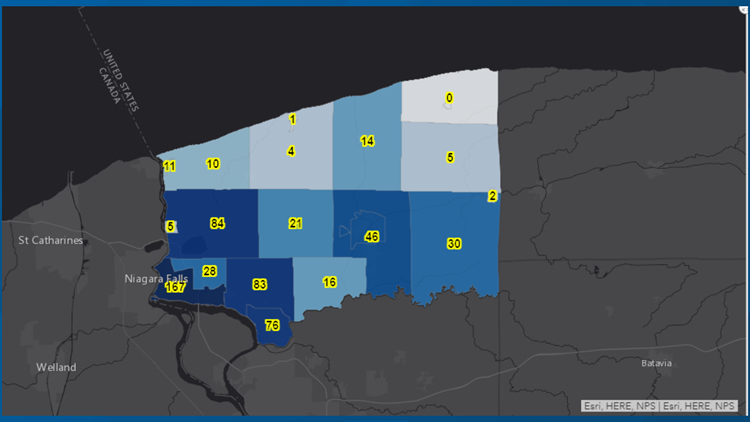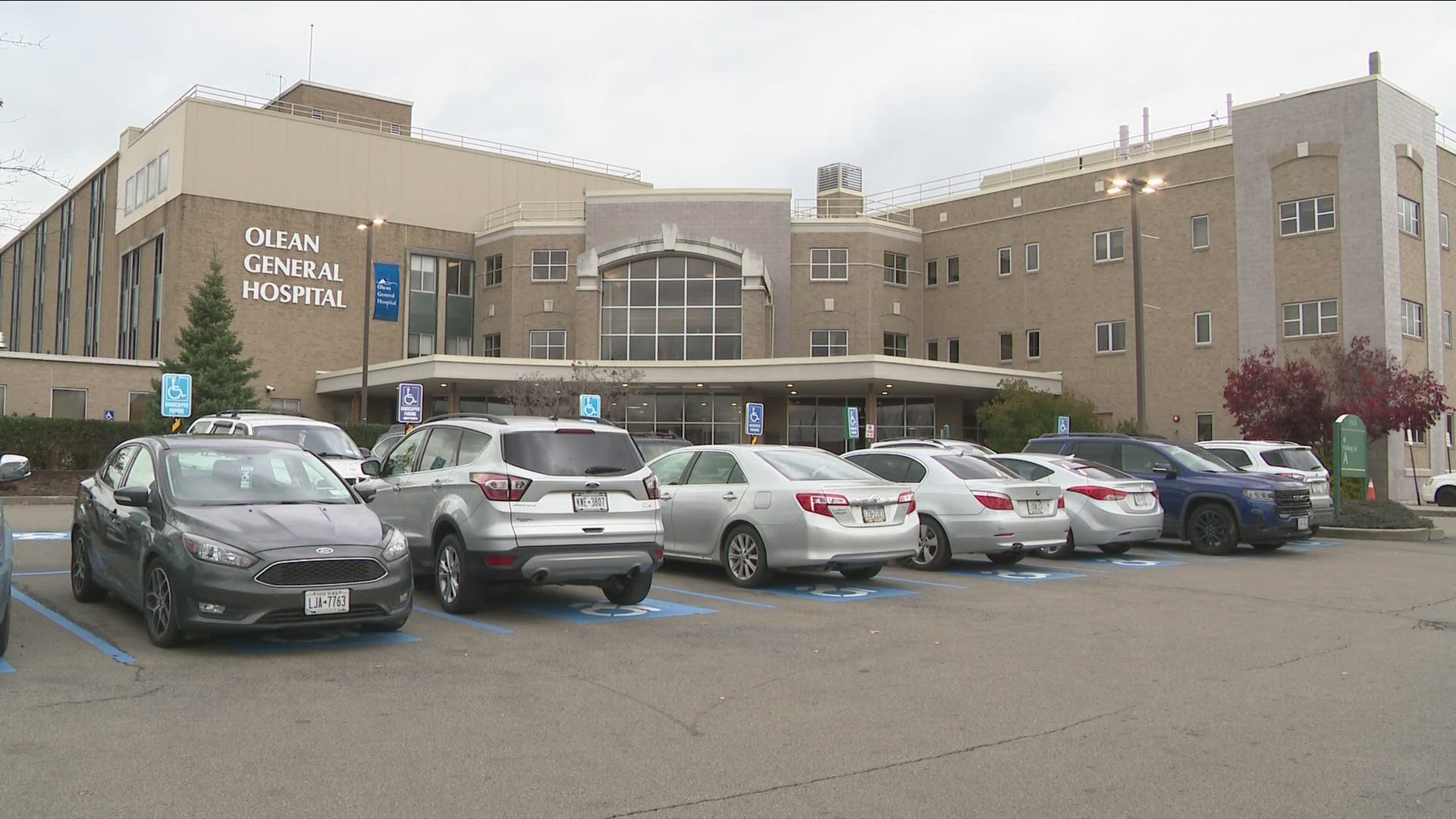LOCKPORT, N.Y. — The Niagara County Department of Health announced the death of two residents of COVID-19 related illness.
A 62 year-old female with underlying health conditions and a 76 year-old male with underlying health conditions have died. That brings the total of COVID-19 related deaths to 105 in the county.
The county also reported 90 new positive cases. There are now a total of 676 active cases; 659 are isolating at home and 17 are in the hospital.
So far, 2,613 have recovered.
The Niagara County Department of Health unveiled a new map earlier this month to show where the highest number of active positive cases are in the county.
The 'heat map' shows the majority of the active cases are in Niagara Falls, Lewiston, Wheatfield and North Tonawanda.
Parts of Niagara County are currently in a Yellow Zone.
Human coronaviruses are usually spread through...
- The air by coughing or sneezing
- Close personal contact, such as touching or shaking hands
- Touching an object or surface with the virus on it, then touching your mouth, nose or eyes before washing your hands.
Help stop the spread of coronavirus
- Stay home when you are sick.
- Eat and sleep separately from your family members
- Use different utensils and dishes
- Cover your cough or sneeze with your arm, hot your hand.
- If you use a tissue, throw it in the trash.
Lower your risk
- Wash your hands often with soap and water for at least 20 seconds. If soap and water are not available, use an alcohol-based hand sanitizer.
- Avoid touching your eyes, nose, and mouth with unwashed hands.
- Avoid close contact with people who are sick.
- Clean and disinfect frequently touched objects and surfaces.
- If you are 60 or over and have an underlying health condition such as cardiovascular disease, diabetes or respiratory illnesses like asthma or COPD, the World Health Organization advises you to try to avoid crowds or places where you might interact with people who are sick.



